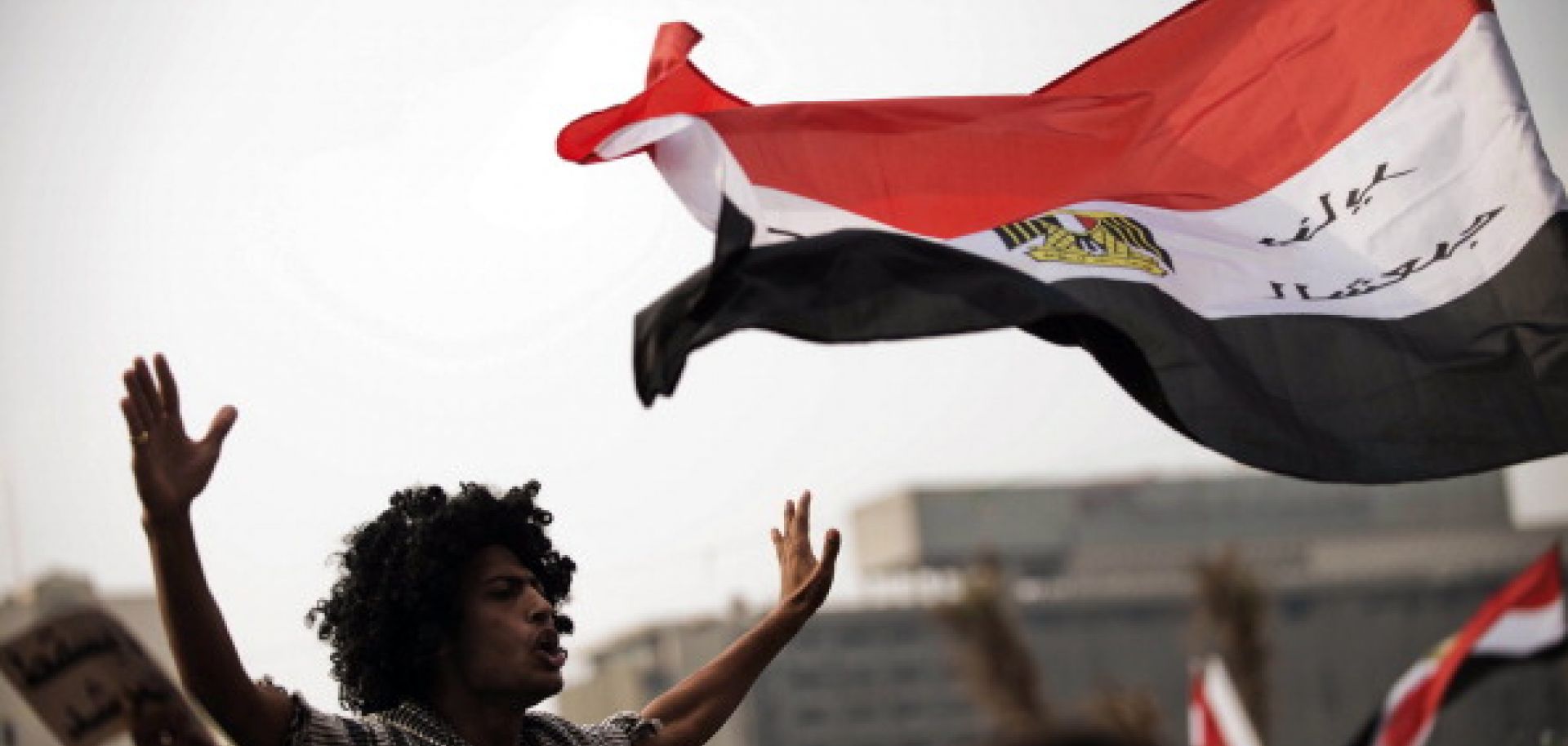ASSESSMENTS
Egypt: The Significance of Morsi's Decrees
Nov 27, 2012 | 20:48 GMT

GIANLUIGI GUERCIA/AFP/Getty Images
Summary
At least 100,000 people gathered Nov. 27 in Egypt's Tahrir Square, some of them clashing with police, Fox News and AP reported. Poitical turmoil will likely continue in Egypt in response to executive decrees issued Nov. 22 by Egyptian President Mohammed Morsi. The decrees grant the president absolute power, including immunity from legal rulings. Opponents of the Muslim Brotherhood, including members of the judiciary, have used legal suits as their main vehicle for challenging the Islamist movement and Morsi.
Egypt is now in the beginning of the process of redefining itself as an Islamist country. The Islamist-led government wants to neutralize the judiciary as a necessary step in consolidating its power within the country. It needs to shut down legal challenges so that the Muslim Brotherhood can work on regaining control of the parliament (which was dissolved by a Supreme Court ruling in June) and position Brotherhood members within the country's civil service and state agencies and institutions as quickly as possible. With the Brotherhood moving to entrench itself within the state bureaucracy, unrest will likely persist, potentially creating an opening for the military to reassert itself.
Proceed to sign up
Register NowAlready have an account?
Sign In